detail profile larry holmes
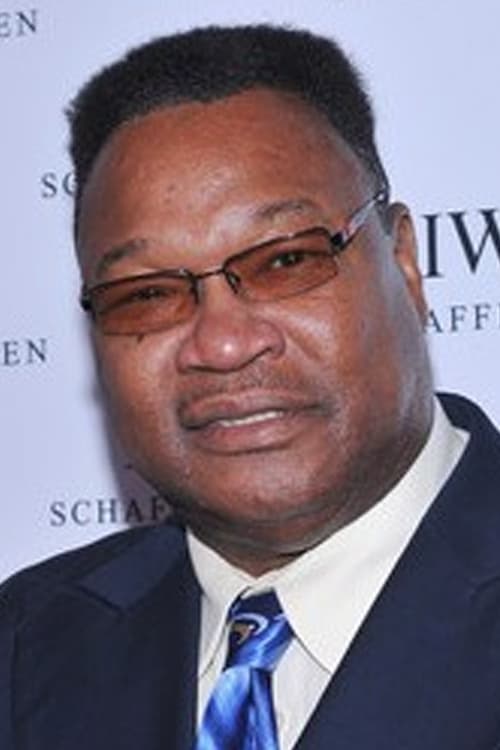
Larry Holmes
The Easton Assassin
atau dikenal sebagai
Riwayat Hidup
Larry Holmes is an American former professional boxer who competed from 1973 to 2002.
He grew up in Easton, Pennsylvania, which led to his boxing nickname of the Easton Assassin.
Holmes, whose left jab is rated among the best in boxing history, held the WBC heavyweight title from 1978 to 1983, The Ring magazine and lineal heavyweight titles from 1980 to 1985, and the inaugural IBF heavyweight title from 1983 to 1985.
During his only title reign, he defended his title against 19 fighters, the second most in history behind Joe Louis.
He also holds the record for the longest individual heavyweight title streak in the modern boxing history.
Holmes is one of only five boxers—along with Joe Frazier, Ken Norton, Leon Spinks and Trevor Berbick—to defeat Muhammad Ali; he is the only one to have stopped Ali.
Holmes won his first 48 professional bouts, including victories over Norton, Ali, Earnie Shavers, Mike Weaver, Gerry Cooney, Tim Witherspoon, Carl Williams and Marvis Frazier.
He fell one short of matching Rocky Marciano's career record of 49–0 when he lost to Michael Spinks in an upset in 1985.
Holmes retired after losing a rematch to Spinks the following year, but made repeated comebacks.
He was unsuccessful in three further attempts (against Mike Tyson in 1988, Evander Holyfield in 1992 and Oliver McCall in 1995) to regain the heavyweight title.
Holmes fought for the final time in 2002, aged 52, against the 334lb Eric "Butterbean" Esch, and ended his career with a record of 69 wins and 6 losses.
He is frequently ranked as one of the greatest heavyweights of all time and has been inducted into both the International Boxing Hall of Fame and World Boxing Hall of Fame.
When Holmes was nineteen, he started boxing.
In his twenty-first bout, he boxed Nick Wells in the semifinals of the 1972 National Olympic Trials in Fort Worth, Texas.
Wells, a southpaw known for unprecedently high knockout-to-win percentage for an amateur boxer, with a majority of knockouts coming in the first round, stopped Holmes in the first round.
Nevertheless, Holmes was chosen by a selection committee of the National Olympic authorities to fight at the Olympic Box-offs in West Point, New York, where he had a match-up versus a fighting seaman Duane Bobick.
Holmes was dropped in the first round with a right to the head.
He got up and danced out of range, landing several stiff jabs in the process.
Bobick mauled Holmes in the second round but could not corner him.
The referee warned Holmes twice in the second for holding.
In the third, Bobick landed several good rights and started to corner Holmes, who continued to hold.
Eventually, Holmes was disqualified for excessive holding.
Holmes invested the money he earned from boxing and settled in his hometown of Easton.
When he retired from boxing, Holmes employed more than 200 people through his various business holdings.
In 2008, he owned two restaurants and a nightclub, a training facility, an office complex, a snack food bar and slot machines.
[citation needed] Holmes currently co-hosts a talk show What The Heck Were They Thinking?
Info Pribadi
Peran Yang Di Mainkan Larry Holmes
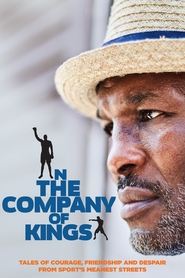 In the Company of Kings follows...
In the Company of Kings follows...In the Company of Kings 2024
In the Company of Kings follows a fight fan's unforgettable journey into the dark heart of American boxing to talk to eight former World Champs and those closest to his hero, Muhammad Ali, about race, struggle, victory, defeat and picking yourself up off the canvas. Features Larry Holmes, Bernard Hopkins, Tim Witherspoon, Earnie Shavers, the Spinks brothers, Bob Arum and more.
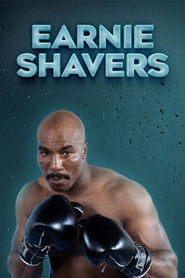 Considered one of the hardesthitting heavyweight...
Considered one of the hardesthitting heavyweight...Earnie Shavers 2021
Considered one of the hardest-hitting heavyweight boxers of all time, Earnie Shavers took on all the best of his era including Muhammad Ali, Larry Holmes, and Jerry Quarry. This is a look back at his career and how he got into the sport of boxing.
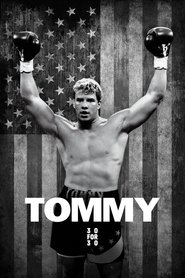 Codirected by Gentry Kirby and Erin...
Codirected by Gentry Kirby and Erin...Tommy 2017
Co-directed by Gentry Kirby and Erin Leyden, “Tommy” examines Morrison’s remarkable rise to the spotlight, followed by a stunning, confounding, and ultimately tragic fall. He was one of the best heavyweights of his time; a handsome, charming, yet unsettled young star. Born into a troubled family in America’s heartland, Morrison’s initial emergence as a fighter was bolstered by a starring role in “Rocky V.” A few years later he beat George Foreman for the WBO heavyweight title, and seemed primed for more stardom, even in the face of blown opportunities and upset losses. But everything changed in early 1996 when he tested positive for HIV, abruptly forcing him into retirement at age 27. From there, Morrison’s life spiraled further and further downward, plagued by drug problems, jail time, and an eventual denial that he had the virus at all.
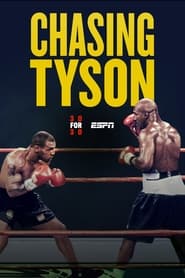 Evander Holyfield knew he could never...
Evander Holyfield knew he could never...Chasing Tyson 2015
Evander Holyfield knew he could never earn the respect he craved until he defeated Mike Tyson. When the two finally fought, the world witnessed not one, but two of the boxing's most memorable fights.
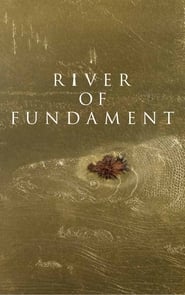 Visionary artist Matthew Barney returns to...
Visionary artist Matthew Barney returns to...River of Fundament 2014
Visionary artist Matthew Barney returns to cinema with this 3-part epic, a radical reinvention of Norman Mailer’s novel Ancient Evenings. In collaboration with composer Jonathan Bepler, Barney combines traditional modes of narrative cinema with filmed elements of performance, sculpture, and opera, reconstructing Mailer’s hypersexual story of Egyptian gods and the seven stages of reincarnation, alongside the rise and fall of the American car industry.
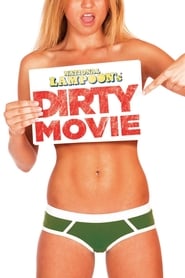 An outrageous cutrate producer is about...
An outrageous cutrate producer is about...Dirty Movie 2011
An outrageous cut-rate producer is about to fulfill his lifelong dream to make a movie about the most offensive, dirtiest jokes ever told. As Charlie and his filmmaking team hilariously struggle to write a script and assemble their award-winning cast, the movie-within-a-movie emerges with one dirty joke after another. Only one can take the crown for writing the dirtiest joke ever told, and Charlie will do whatever he can to be that king.
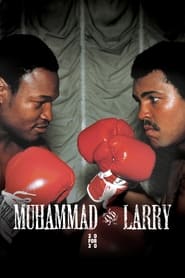 In October of 1980 Muhammad Ali was...
In October of 1980 Muhammad Ali was...Muhammad and Larry 2009
In October of 1980 Muhammad Ali was preparing to fight for an unprecedented fourth heavyweight title against his friend and former sparring partner Larry Holmes. To say that the great Ali was in the twilight of his career would be generous; most of his admiring fans, friends and fight scribes considered his bravado delusional. What was left for him to prove? In the weeks of training before the fight, documentarians Albert and David Maysles took an intimate look at Ali trying to convince the world and perhaps himself, that he was still “The Greatest.” At the same time, they documented the mild-mannered and undervalued champion Holmes as he confidently prepared to put an end to the career of a man for whom he had an abiding and deep affection
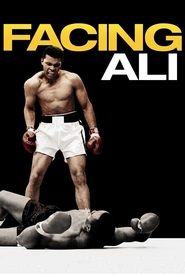 Ten of Muhammad Alis former rivals...
Ten of Muhammad Alis former rivals...Facing Ali 2009
Ten of Muhammad Ali's former rivals pay tribute to the three-time world heavyweight champion.
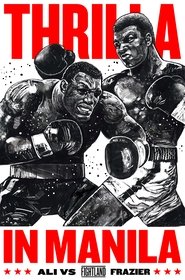 On October 1 1975 World Heavyweight Boxing Champion...
On October 1 1975 World Heavyweight Boxing Champion...Thrilla in Manila 2008
On October 1, 1975, World Heavyweight Boxing Champion Muhammad Ali was in the ring with his arch rival Joe Frazier for the third time. This fight in the Philippines, which has been nicknamed "Thrilla in Manila," is considered one of the most dramatic boxing matches in history - in the words of the voice-over, "They hated each other." With the help of archive material and eyewitness accounts (including Imelda Marcos), this documentary not only reconstructs the match, but shows us what was happening behind the scenes as well.
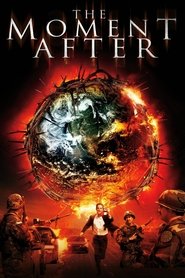 In the twinkling of an eye...
In the twinkling of an eye...The Moment After 1999
In the twinkling of an eye, a mass disappearance has occurred. Moments after the turmoil and confusion, the FBI is called in to investigate and locate the missing persons. For Agent Adam Riley (David White), it is personal. For Agent Charles Baker (Kevin Downes), it doesn't matter, it's just a job.
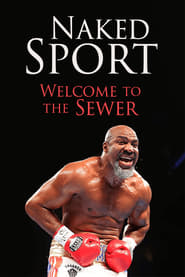 Produced by PBS in 1992 this documentary...
Produced by PBS in 1992 this documentary...Naked Sport: Welcome to the Sewer 1993
Produced by PBS in 1992, this documentary explores the darker side of boxing. It follows the career of a young Shannon Briggs and includes interviews with Evander Holyfield, Larry Holmes, Teddy Atlas, Dan Duva, Kathy Duva, Lou Duva, Bobby Czyz, Bob Arum, Mike Marley and even Muhammad Ali.
 Fallen Champ The Untold Story of...
Fallen Champ The Untold Story of...Fallen Champ: The Untold Story of Mike Tyson 1993
Fallen Champ: The Untold Story of Mike Tyson is a 1993 film made by acclaimed American documentary filmmaker Barbara Kopple. Though Tyson was in jail serving a sentence for rape, Kopple used existing interviews with the boxer, as well as her own extensive interviews with those closest to Tyson, to explore the man's history. The film traces Tyson's story from his troubled and tumultuous upbringing, through his rapid ascendancy in the ranks of the boxing world and his subsequent struggle with the trappings of fame. Fallen Champ earned Barbara Kopple a Directors Guild of America award as Best Documentary Director of 1993.
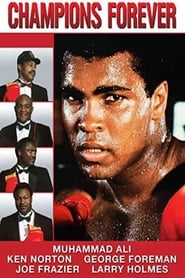 No other film has the sweeping...
No other film has the sweeping...Champions Forever 1989
No other film has the sweeping review of Ali's greatest fights, the legendary fight footage, and the real time relevant comments and conversations with the men who made him "The Greatest." Muhammad Ali was simply the greets and he proved by going up against the most incredible fighters of all time, together they made the world of sports stand still as they battled for dominance.
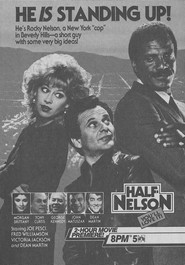 Rocky Nelson is a New York...
Rocky Nelson is a New York...Half Nelson 1985
Rocky Nelson is a New York cop, who after making a major bust and selling the rights of his story to Hollywood decides to try his luck out as an actor. However, when he gets there, the directors think that he is too short to be an actor. He is then approach by someone who offers him a job at a Hollywood security agency, cause he would fit in there being an ex-cop and while working there he could come in contact with some Hollywood heavy-weights who could give him the break he needs. And at the same he gets to live in Dean Martin's guest-house.
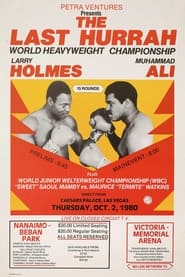 Through the poetic lens of visionary...
Through the poetic lens of visionary...Muhammad and Larry 1980
Through the poetic lens of visionary filmmakers Albert and David Maysles, Muhammad and Larry explores the unique and poignant relationship between two great boxers and two remarkable men who were more than just competitors. They were once teacher and student, and remain close friends.
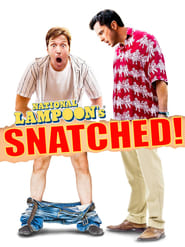 A nice guy goes into the...
A nice guy goes into the...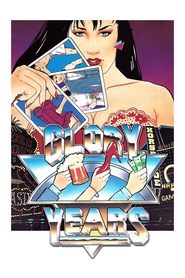 A group of former highschool buddies...
A group of former highschool buddies...